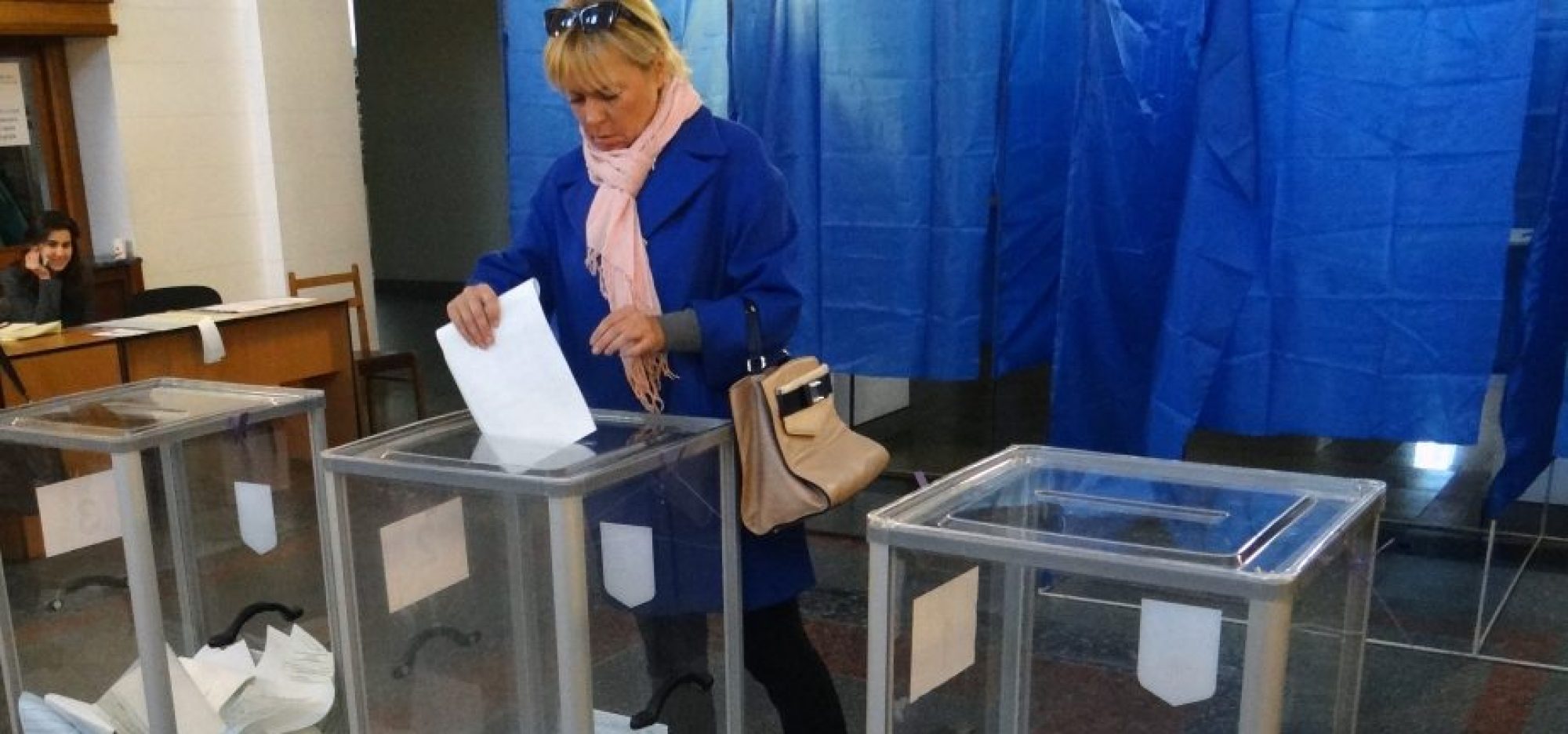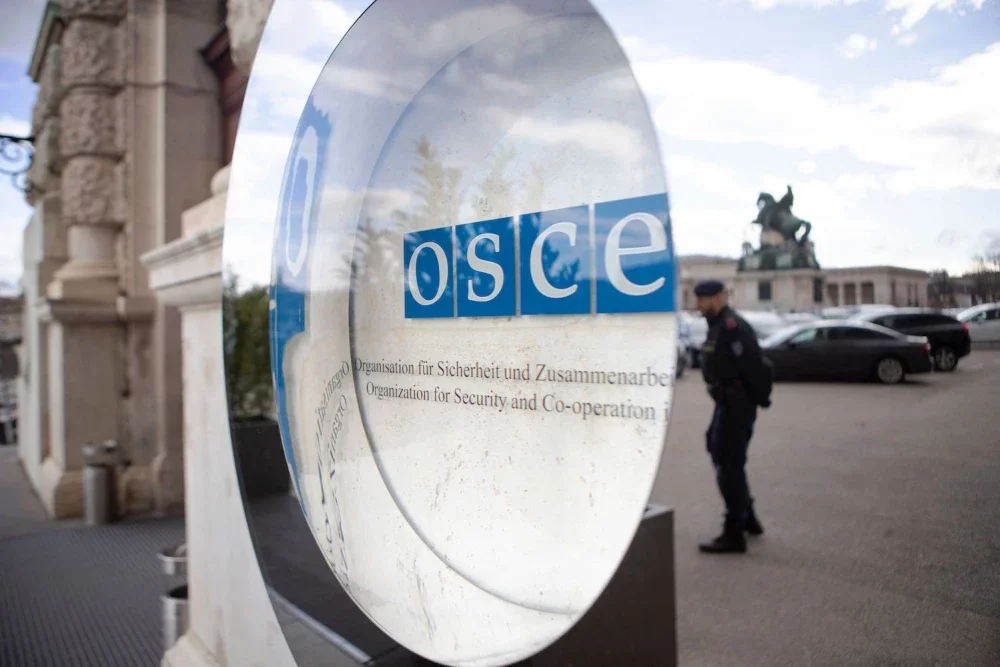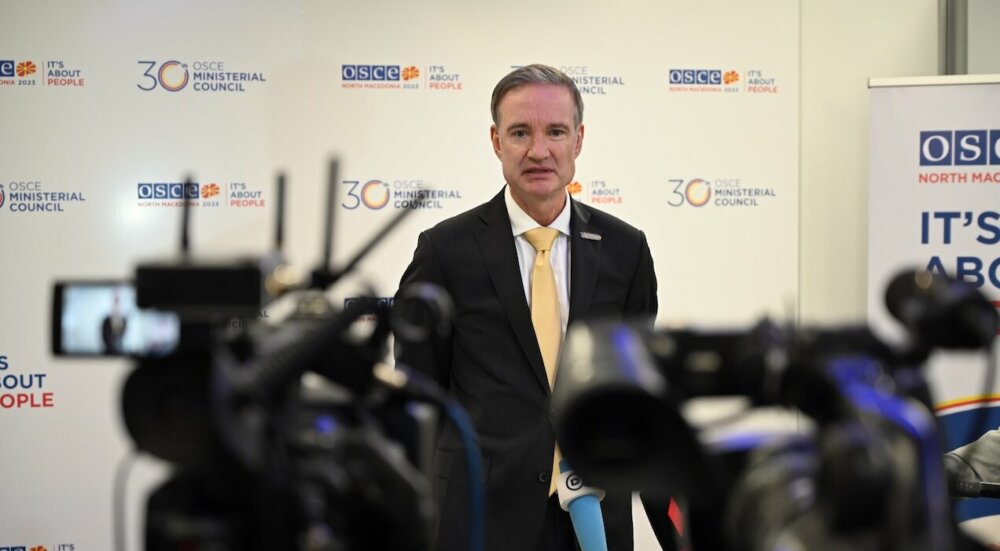Photo: OSCE/Thomas Rymer

Parliamentary elections in Ukraine point at two possible future scenarios
On 26 October early parliamentary elections took place in Ukraine. Results show a clear victory for pro-Western parties. According to the Ukrainian Central Election Commission, Arseniy Yatsenyuk’s People’s Front won 22.14% of the vote, just ahead of President Petro Poroshenko’s Bloc, which took 21.82% of the vote. The so-called Self-Reliance party, led by the mayor of Lviv is third with 10.79% of the vote. These results should give President Poroshenko a strong mandate to stabilize the country politically and economically and to forge a plan to end the conflict in the east.
Yet, voting did not take place on the Crimean peninsula and was limited in the east. According to the International Election Observation Mission (which released an overall positive preliminary statement on the elections), voting took place in 12 out of 21 election districts in the Donetsk region and in 5 out of 11 in the Luhansk region. In the eastern regions, up to 38% [1] voted for the Opposition Bloc, which consists of allies of ousted president Viktor Yanukovych. (Nation-wide the Opposition Bloc won 9.42% of the vote.) This strong performance by the Opposition Bloc in the Donbass indicates that even if the armed conflict there will be settled, the pro-Western government in Kiev has to find a way to work with the opposition and to include the rights of the ethnic Russian population in the constitutional and decision-making process. In this way, Russian concerns about the rights of ethnic Russians in eastern Ukraine could be alleviated. Some work in this direction has already occurred. On 16 October President Poroshenko signed the ‘Law on Special Status for Donbass’. The OSCE could support this process of political stabilization through the resumption of the National Dialogue Roundtables on constitutional reform and decentralization. This first scenario on the future of Ukraine would provide the country with a real chance for sustainable peace and stability.
Conversely, if fighting does not stop and the new pro-Western government in Kiev is not be able to reassert control over its territory in the east, a more somber scenario could develop. With rebels holding on to territory in the east and boycotting efforts by Kiev to stabilize the country politically and economically, there is a high risk that a new protracted conflict – similar to the ones in Transdniestria, Abkhazia or South Ossetia – will be created in the OSCE area. Experience shows that such protracted (or ‘frozen’) conflicts are particularly difficult to settle as the parties lose an interest in a final settlement and the breakaway regions engage in de facto institution-building with the support of Russia.
In fact, certain very concrete developments already point in that direction. On 2 November pro-Russian rebels, in a clear violation of the spirit of the ‘Minsk Protocol’ staged ‘elections’ in Donetsk and Luhansk to elect members of Parliament as well as prime ministers. The Russian news agency Itar Tass reported on a statement from the Russian Foreign Ministry that seems to recognize the elections: “The elections in the Donetsk and Luhansk regions have been held in an orderly fashion in general and had a high voter turnout. We respect the will expression of the residents of (Ukraine’s) south-east”, the statement reads. This seems to indicate that neither the rebels nor Russia have a real interest in sticking to the Minsk Protocol which actually provides for early local elections (planned for 7 December) in districts of the Donetsk and Luhansk regions.
If the rebels with the support of Russia continue on this course of action, the creation of another protracted conflict is inevitable. If, on the other hand, parties decide to stick to the Minsk Protocol they will pave the way for a united and stable Ukraine.
[1] Figure cited in Christian Weisflog, “Janukowitschs Erben,” Neue Zürcher Zeitung, 29 October 2014, available at http://www.nzz.ch/international/janukowitschs-erben-1.18414098



Comments
* Your email address will not be published